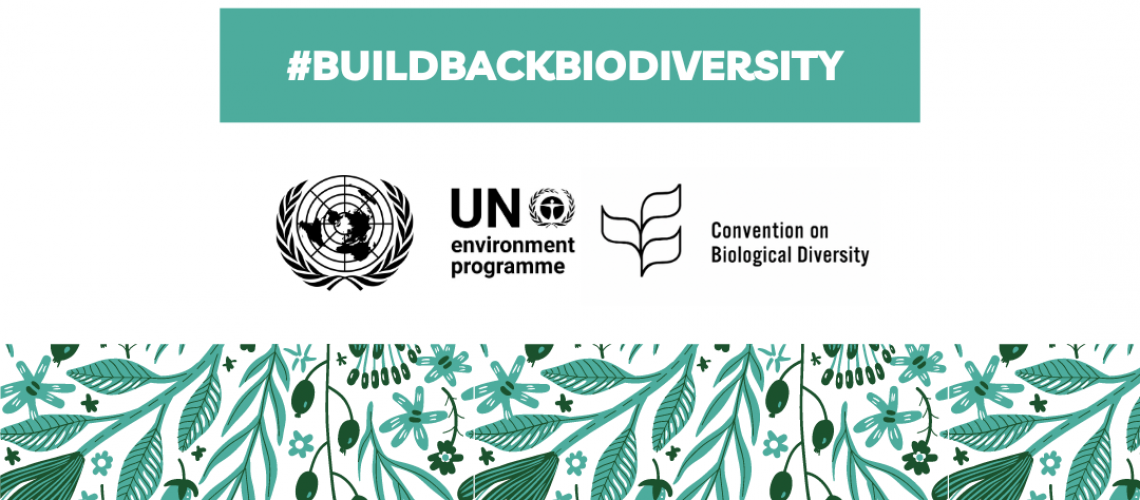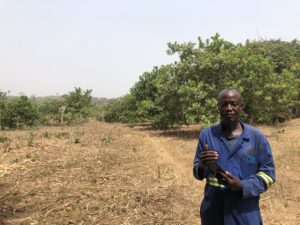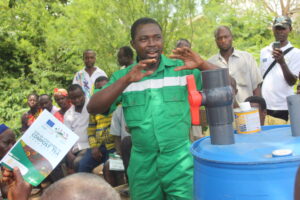Globally, biodiversity is essential for maintaining healthy ecosystems that provide us with clean air and water, fertile soil, medicines, and food. Without biodiversity, these essential ecosystem services would be compromised, leading to a decline general well-being of humanity. Biodiversity refers to the variety of plants, animals, and micro-organisms that make up the natural world. It encompasses the genetic diversity within species, species’ variety, and ecosystems’ diversity.
In Ghana specifically, biodiversity is essential for supporting the economy and traditional ways of life. According to the Convention on Biodiversity, Ghana is a highly biodiverse country with over 6,000 plant species and over 700 bird species. The country’s forests, wetlands, and savanna are home to a variety of wildlife, including chimpanzees, elephants, butterflies and crocodiles. Biodiversity supports Ghana’s economy by providing important resources such as timber, non-timber forest products, and ecotourism opportunities. In addition, biodiversity supports subsistence livelihoods for many Ghanaian communities that rely on natural resources for food, medicine, and building materials. Despite its importance, human activities such as illegal mining (galamsey), illegal logging, overfishing, urbanization, high population growth, and indiscriminate disposal of waste are causing significant threats to the biodiversity of the country.
As the world marks the International Day of Biodiversity, EcoCare Ghana believes it is time for citizens and leaders of our nation to reflect, develop and implement concrete actions to conserve and restore biodiversity for the well-being of our people and socio-economic development of Ghana. The International Day of Biodiversity is an annual event celebrated on May 22. This year’s theme is “From agreement to action: Build back biodiversity”. The theme highlights the need to transform commitments made in the Convention on Biological Diversity into concrete actions that deliver on the objectives of the post-2020 global biodiversity framework.

To mark this day, the United Nations has identified 22 actions that individuals, businesses, cities, and governments can take to support biodiversity conservation and restoration. These actions include planting indigenous trees, reducing plastic use, supporting sustainable fisheries, and creating green spaces in urban areas.
- Individuals can take action by adopting sustainable lifestyles that reduce their impact on biodiversity. This can include reducing meat consumption, using public transportation, and supporting sustainable tourism.
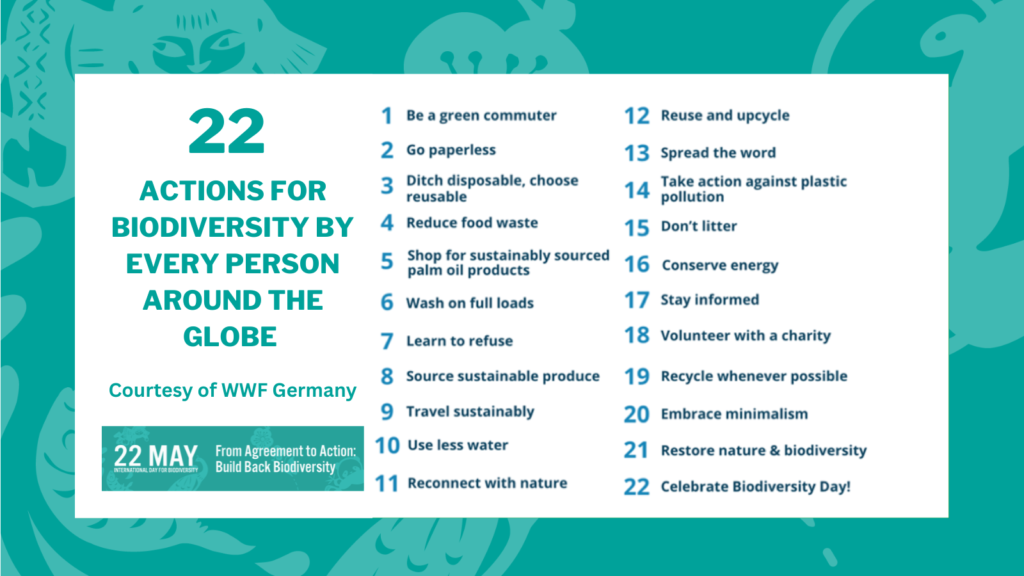
- Businesses can support biodiversity by adopting sustainable practices that minimize their impact on the environment. This can include reducing resource consumption, supporting sustainable supply chains, and investing in renewable energy.
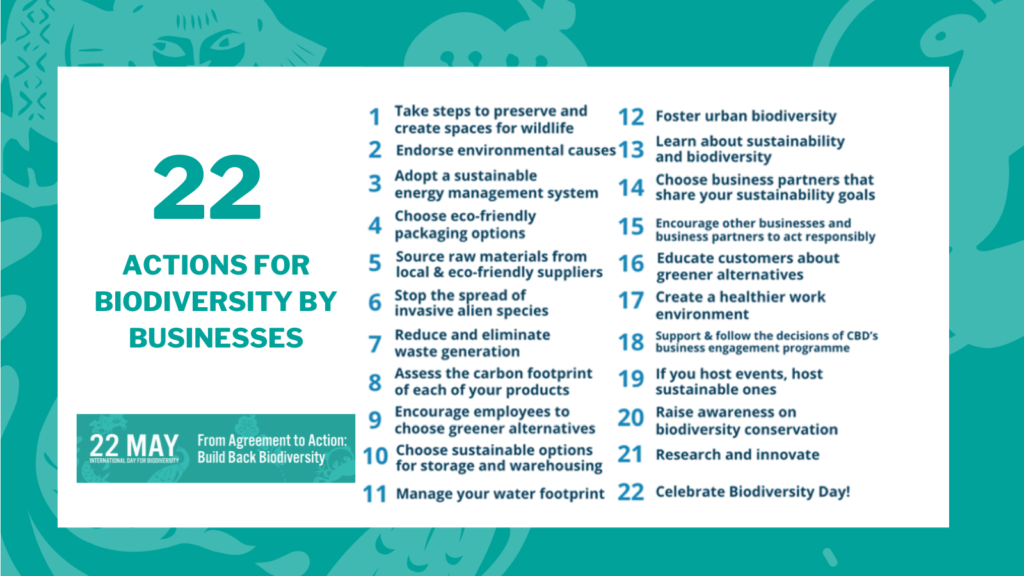
- Cities can support biodiversity by creating green spaces and protecting natural habitats within urban areas. This can include promoting sustainable urban planning, adopting green infrastructure initiatives, and supporting urban agriculture.
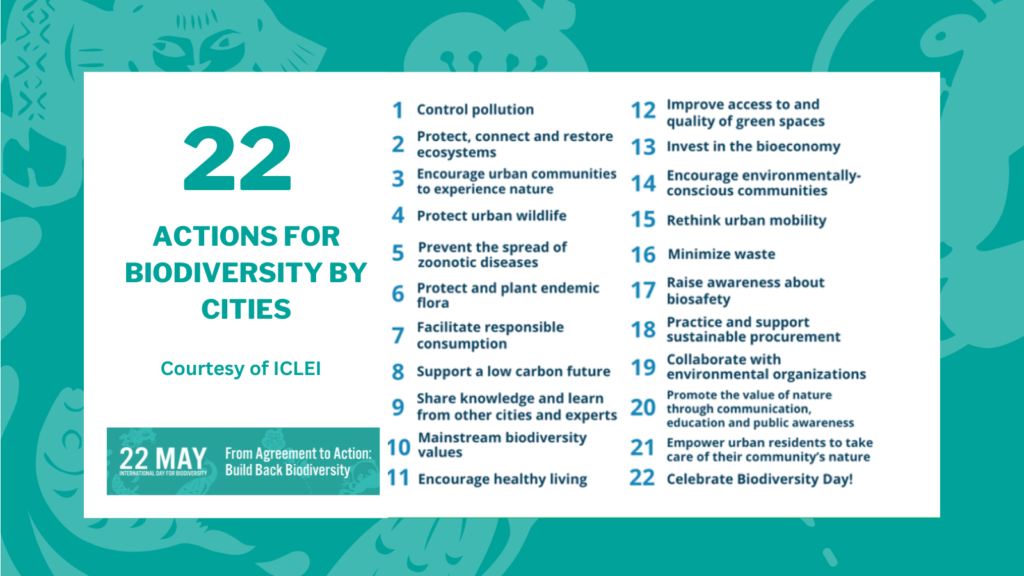
- Governments can take action by implementing policies that promote sustainable development and protect biodiversity. This can include supporting conservation initiatives, regulating land use, and investing in green technologies.
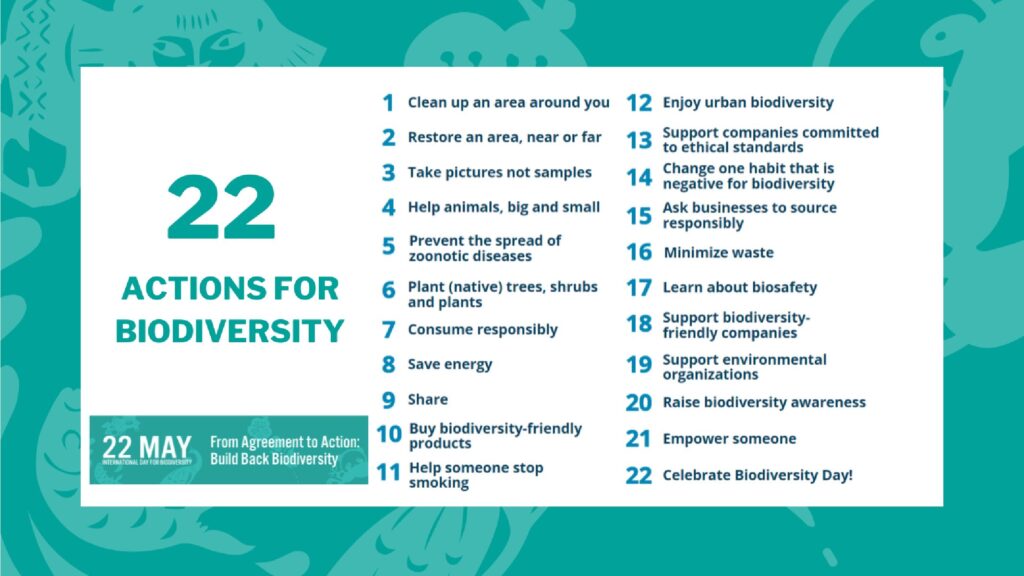
We call on all and sundry to work together on developing and implementing concrete actions to build back biodiversity and protect the planet for future generations.
Source of Graphics: Convention on Biodiversity

